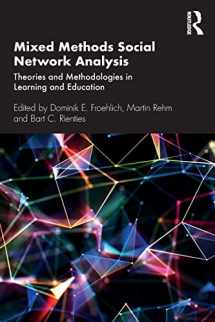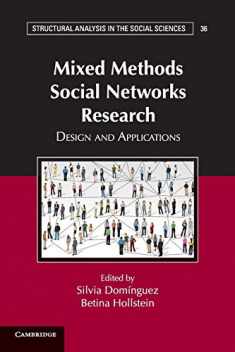
Mixed Methods Social Network Analysis: Theories and Methodologies in Learning and Education
Book details
Summary
Description
Mixed Methods Social Network Analysis brings together diverse perspectives from 42 international experts on how to design, implement and evaluate Mixed Method Social Network Analysis (MMSNA). There is an increased recognition that social networks can be important catalysts for change and transformation.
This edited book from leading experts in mixed methods and social network analysis describes how researchers can conceptualize, develop, mix, and intersect diverse approaches, concepts, and tools. In doing so, they can improve their understanding and insights into the complex change processes in social networks. Section 1 includes eight chapters that reflect on "Why should we do MMSNA?", providing a clear map of MMSNA research to date and why to consider MMSNA. In Section 2 the remaining eleven chapters are dedicated to the question "How do I do MMSNA?", illustrating how concentric circles, learning analytics, qualitative structured approaches, relational event modeling, and other approaches can empower researchers.
This book shows that mixing qualitative and quantitative approaches to social network analysis can empower people to understand the complexities of change in networks and relations between people. It shows how mixed analysis can be applied to a wide range of data generated by diverse global communities: American school children, Belgian teachers, Dutch medical professionals, Finnish consultants, French school children, and Swedish right-wing social media users, amongst others. It will be of great interest to researchers and postgraduate students in Education and social sciences, and mixed methods scholars.


We would LOVE it if you could help us and other readers by reviewing the book
Book review




